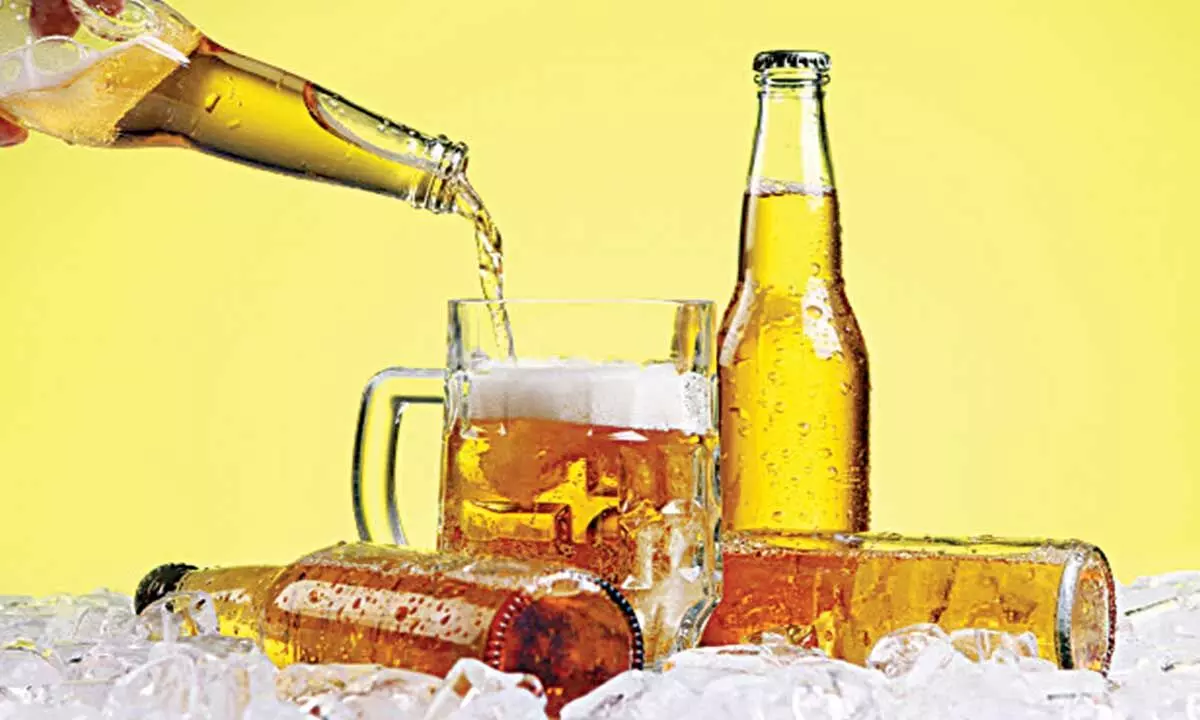Health-conscious young generation has a cautious approach to alcohol
The alcohol sector has gained from its robust and significant consumer base
image for illustrative purpose

Amid India's growing population, 13 million individuals of legal drinking age are added each year, and at least 3-5 million end up drinking alcohol in one fashion or the other. Millennials, those born between early 1980s and early 2000s, are said to be more concerned with their health than the baby boomer generation and generation X
The trends that have previously shaped the global beverage alcohol marketplace will be transformed over the next five years as the world moves from the dark days of Covid-19 pandemic to a period of growing economic instability. The effects of these shifts will be wide-ranging, from the growing importance of the home premise occasion to a moderation trend increasingly driven by the need to cut household spending.
As the world enters a period of growing economic fragility, those with financial stability – typically consumers with lower levels of debt and a secure employment – will provide increasing opportunities for premium and above spirits and wine brand owners. This is a notable shift from the situation during the Covid-19 pandemic, when millennials led the global consumption bounce-back in 2021 in key markets like the US, the UK, France, Germany and Brazil.
This phenomenon was driven by their higher levels of disposable income and embracing more sophisticated home consumption occasions – but this trend is likely to be reversed by economic instability, leaving consumers of legal drinking age with less secure finances and employment prospects in the years ahead.
The alcohol sector has gained traction, which is a sign of its robust and significant consumer base, which increasingly includes millennials and Gen-Z. Amid India's growing population, 13 million individuals of legal drinking age are added each year, and at least 3-5 million end up drinking alcohol in one fashion or the other.
Millennials, those born between the early 1980s and early 2000s, are said to be more concerned with their health than the baby boomer generation and generation X.
However, with the healthy eating and the push for a more active lifestyle, the one thing that fails to decrease is consumption of alcohol.
That would mean that millennials may drink more than the previous generations, but they are still trying to live healthy. It sounds oxymoron but there are many outlooks to this lifestyle.
Per se, lifestyle changes among one generation to the other are attributed as cause for the change in the importance of taking care of health. Big examples of the disparity are evident from walking to work versus driving, more sedentary jobs and, of course, the use of technology making everyone’s overall lives less active unless a conscience effort is put in.
According to a recent study by well-known dating app, Bumble, the "Dry Dating" (alcohol-free dates) trend will continue to be popular well beyond dry January in 2023. The platform anticipated that this trend will be the top dating trend. People are intentionally selecting sober, alcohol-free dates as more single Indians re-examine their relationship with alcohol. This year, daters are getting better at expressing what they want and don't want in their dating experiences, questioning the status quo and dating on their own terms.
According to a recent national poll by the app, 24 per cent of single Indians, who drink, claimed that they won't do so on dates in 2023. The main justification for not drinking on a date, according to a majority (56 per cent) of people, is that they want to get to know the other person without being distracted.
In an effort to improve their health and wellness by consuming less alcohol, 45 per cent of respondents, who drink, make the decision not to drink on dates.
According to the latest study, nearly one in two (47 per cent) millennial respondents admitted they use alcohol to calm their worries before dates, while nearly one in three (31 per cent) Gen Z respondents admit that they do so to keep their date company. Gen Z (those born after 1995) have grown up in a world of uncertainty. Declining job prospects, concerns around home ownership and the wider impact of the 2008 financial crisis have been a constant throughout their lives. On top of this, they are the first generation with access to mobile devices almost from birth - meaning that they are highly connected digital natives who understand the nuances of having an online presence.
Considering these young adults are estimated to make up 40 per cent of spending power, it is crucial for every brand to pay attention to the broad generational attitudes of this audience.
When it comes to prioritising productivity and success, Gen Z place work/university performance above socialising in their life priorities and 20 per cent of university students are conservatively estimated to be tee-total.

